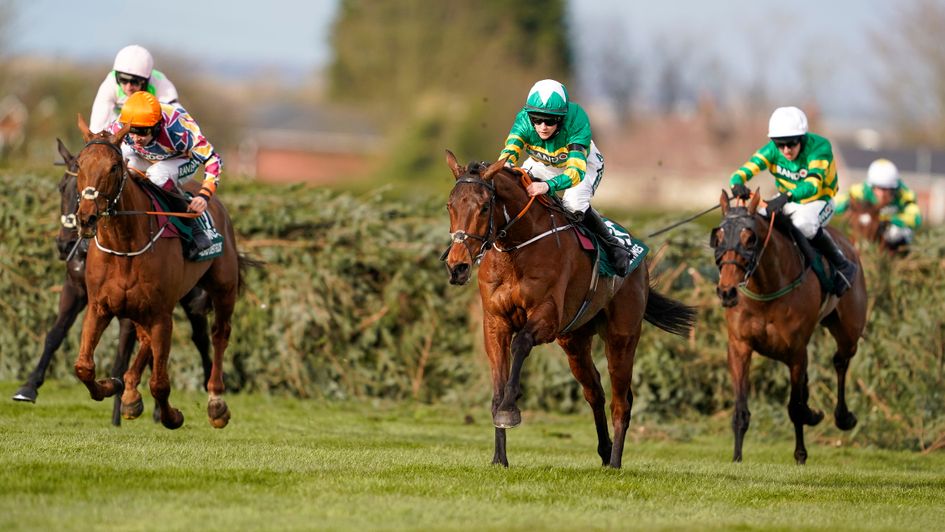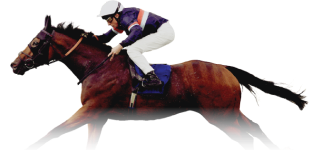After a historic Randox Grand National, our columnist Cornelius Lysaght argues it's time for British racing to take stock - and decisive action.
Now that the immediate excitement over the unforgettable Grand National success of Rachael Blackmore and Minella Times has eased a little, there is space to take stock.
And for me, while still in awe of the history-makers, there has been the same uneasy feeling as followed on after the thrills of the race in 2012 – one of, despite everything, an underlying crisis for horseracing, particularly jumping.
Back in 2012, after celebrating the breathless success of Neptune Collonges over Sunnyhillboy by the narrowest ever margin - a nose - it became increasingly apparent that public disquiet about fatalities in the race was reaching unparalleled levels, fever pitch in fact.
Two prominent contenders had lost their lives, the Cheltenham Gold Cup winner Synchronised, in a freak accident while running loose after falling, and According To Pete, owned by a village paper shop owner from Yorkshire, and the subject of many column inches in the build-up, who was brought down at Becher’s.
It was the second year running that two horses had died, and I spoke on BBC Radio at the time about a “dark cloud” hanging over the race and suggested changes were essential if this “great British sporting institution” was to survive.
While I knew that the BBC would be pleased with the hard-line taken I was slightly dreading the response from within racing itself, which has not always been exactly renowned for facing up to reality.
However, bar one famously opinionated trainer – female, guess – who reckoned I was trying to get the Grand National abolished the response was pretty much universally that 'the race has to keep up with the times, and adapt where necessary'.
The subsequent ‘softening’ of the central core of the fences made all the difference and probably saved the race.
In 2021 after quite possibly the most significant racing result of my lifetime, it is important that the understandable ‘feelgood factor’ is not permitted to obscure another crisis engulfing British jump racing.
As though the 23-5 rout of domestic challengers by Ireland at the Cheltenham Festival was not humiliating enough, Irish horses filled 12 of the 15 Grand National finishing positions, with the best of the home team the veteran Blaklion in sixth.
In 2018, Tiger Roll led home a 1-2-3-4 for Ireland, and twelve months later he was immediately followed by two more of his compatriots.
Although there may be an element of the cards not falling well for the British, there is obviously more to it than that, and there is zero point pretending otherwise.
Various theories have been expounded, mainly revolving around the fairness of the handicapping system in Britain; low levels of prize money; excessive ‘betting shop fodder’ races – though clearly that contributes to funding; the priorities of the jumps season’s programme; the limited use of point-to-points as nurseries, and more.
It is to be hoped that the powers-that-be at the British Horseracing Authority (BHA) and at The Jockey Club, owner of Aintree and Cheltenham and therefore chief National Hunt provider, are alert to the seriousness of it all.
This issue must be prioritised, with ideas gathered and articulated, and an action plan formed and executed, similar to what Irish officials produce regularly, and with conspicuous success.
A good start would be to consult wealthy British-based owners about why many have most of their horses under the case of trainers in Ireland.
So far, not much has been said by top brass on this one: I was told by someone of influence at the Authority to “be assured that discussion is taking place to ensure a proportionate response” which, with the greatest respect, sound like words straight out of a technocrat’s dictionary.
The worry is that if British punters looking at major prizes are met with lists of horses of which they are mainly unfamiliar, because they are based across the Irish Sea, they will just switch off and watch/bet on something else.
I’m not saying at all that the ITV figures which showed a noticeable fall in numbers watching the Grand National itself – and of its all-important share of the available audience – are down because of this.
But as one of the tens of thousands barred from attending Aintree because of Covid regulations, I can testify there was not much wrong with the coverage.
It would be catastrophe for British racing, and for British sport as a whole, if having navigated the perils of horse welfare the Grand National ended up being unseated by something that really might have been avoided.










